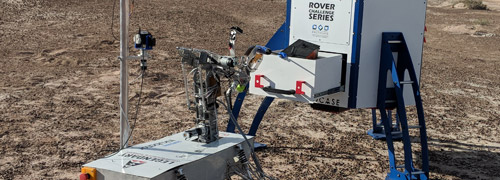PIPPIN TECHNICAL SERVICE - Sound Advice

One hundred thirty years after Guglielmo Marconi invented wireless telegraphy, a Canadian company is utilizing cutting-edge technologies to further advance the evolution of radio.
Pippin Technical Service, founded in 1980 and now better known as PTS, is a Saskatchewan-based firm that’s evolved from an RF specialist to a turnkey service provider. Today, the company designs, integrates and installs systems for the broadcast, telecommunications and A/V industries.
Through its PTS Gear division, the firm also offers products, services and tailor-made solutions for commercial sound, professional A/V and other sectors.
Company sales and marketing specialist Grant Biebrick says the broadcast industry remains its ‘bread and butter’ with a focus on radio.
NICHE MARKET
According to Biebrick, there are very few companies in Canada that do what PTS does.
“When it comes to which Canadian radio stations that we work with, it’s probably easier to talk about who we don’t deal with. Our customer base is pretty varied, but we also deal with anybody and everybody,” he says.
“There’s a few other companies that pick up some projects here and there, but we go coast to coast. We deal with radio stations in everything from studio equipment to the transmission facility to the antennas, transmitters. Anything and everything really. From system design, purchasing, installation, and even bespoke solutions a specific project may need.”
INDUSTRY CHALLENGES

Along with maintaining listenership with a plethora of options vying for attention, one of the challenges facing the broadcasting industry is keeping up with the constant advancement of new technologies.
While the broadcast industry has traditionally relied on radio waves to reach listeners, continuous developments in the fast-paced digital world have meant a massive shift in delivery.
“The distribution methods are changing a lot. In the past, a lot of stuff used to be done via RF, but now everything is pretty much going IP,” says Biebrick
“We’re dealing with a client that has located all their gear, consoles, basically all of the technology for their broadcast at their transmitter site. It’s a hardened facility with internet and power redundancy and their actual studio is now essentially a thin client PC with mouse, keyboard and a microphone.
“The size of radio stations is slimming down and a lot of physical equipment is being virtualized and moved into the cloud or a server farm. So, not as much gear.”
PIPPIN MYSTERY BOX
After years of serving many clients with custom solutions, the PTS team realized they could tap into a larger market by offering some of its bespoke solutions to a wider audience.
“For the longest time we’d grab a little project box, throw some stuff in it and it solved some problem for somebody – we affectionately called them ‘Pippin Mystery boxes’,” recalls Biebrick.
“Every one of those solutions was treated like a one-off. Then we started thinking that since we’ve solved the same problem a few times, maybe that’s something we could turn into a product with its own name and brand.”
That led to the creation of PTSgear and development of a host of standalone turnkey products assembled with some of the highest quality equipment available.
PARTNERSHIPS
For the past 25 years, Pippin Technical Services has been Canada’s exclusive Axia audio. Part of the Telos Alliance, Axia is a line of products that includes broadcast mixing consoles, mixing console engines and accessories.
“Axia was the first company that really brought audio over IP into the commercial broadcast space,” explains Biebrick.
“They figured it out. Instead of having a giant matrix and patch bay and everything in the rack room that ends up costing thousands of dollars and weeks of time to wire a studio, they found a way to use a Cisco switch. It transmits lots of audio over IP and uses a lot of SIP-based technology.”
Over the years, PTS has established more than 120 partnerships and vendor deals with suppliers around the world. They include Yellowtec, a German company that according to Biebrick, manufactures high-quality microphones that have become the de facto standard for broadcast studios.
Other partner companies include antenna and signal transmission solutions provider Dielectric, playout/automation vendor ENCO Systems, and an ever growing list.
CONNECTING WITH PROTOCASE
With a legacy of using top-the-line products and components, PTS turned to Protocase when developing Aurora, a fully-enclosed device that allows m!ka LITT signaling and “on-air” mic booms to interface a customer’s existing Axia network.
Biebrick says discovering Protocase and its signature Protocase Designer software has made packaging Aurora’s components much easier.
“A lot of metal shops are more than capable, but’s often a case of them fitting you in when they can,” he says.
“We’re not their top priority, especially when they are working on a big project. And, they often don’t do all the other stuff to complete a project. We might get something back from them and then have to take to it the powder coating shop, or to get screen printed”.
“When we get it from Protocase, it’s in the box, it’s all nicely bubble wrapped, everything comes with it, it looks good, it’s delivered, the quality is there, the consistency is there and we can just open up the box and know that it’s going to be right.”
Biebrick adds that Protocase is a perfect fit for small batch production.
“It’s good to have that consistency and comfort in knowing it’s going to be the same every time you do a re-order which is a very simple process,” he says.
“Hat’s off to Protocase for being able to pull off a process with such a quick turnaround time while still being able to do one-off pieces. The Protocase experience is through the roof.”

